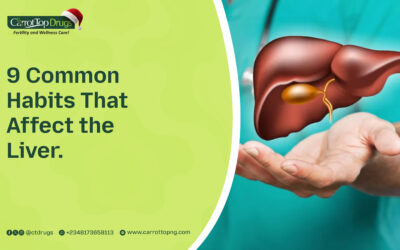What is Ectopic Pregnancy?
An ectopic pregnancy is one whereby the fertilized egg is implanted outside the uterus. Usually, this occurs in the fallopian tube. In some rare occasions, ectopic pregnancy can also occur in the abdominal cavity or even on the ovary. Unlike the uterus, the fallopian tubes are not so elastic.
Also, the fallopian tube is not designed to support the fertilized egg. This could lead to serious complications like bleeding. It is often life-threatening to the mother as well. Because of these reasons, an ectopic pregnancy is not a pregnancy that can be carried to full term.
Ideally, the follicle covering an egg releases it during ovulation. The egg then travels from the ovary into the fallopian tube where the sperm cell fertilizes it. After fertilization, the egg moves into the uterus and implants itself, developing until it is fully grown.
Upon discovery, ectopic pregnancy is treated as a medical emergency. This is because as the fetus grows, the tube can burst leading to a lot of blood. If this is the case, it is treatment commences immediately to avoid complications. Unfortunately, this procedure is fatal for the fetus because it can not survive outside the uterus.
What Are the Possible Causes Of Ectopic Pregnancy?
Ectopic pregnancy usually occurs in situations where there have been difficulties in the movement of the egg from the ovary to the fallopian tube and finally into the uterus.
What Factors Predisposes a Woman to Have Ectopic Pregnancy?
The following are some of the risk factors that predispose one to have ectopic pregnancies:
- A previous history of pelvic inflammatory disease (PID)
- Previous surgery on the fallopian tubes
- A history of infertility
- Endometriosis
- Sexually transmitted infections (STIs)
- An intrauterine device (which is a birth control device)
- A history of smoking
What Are the Symptoms of An Ectopic Pregnancy?
Some of the symptoms to watch out for are the following:
- Bleeding from the vagina could be an indication of ectopic pregnancy
- Abdominal pain
- Weakness and pains
- If due to lack of immediate discovery, the fallopian tube ruptures, then there would be severe loss of blood as well as:
- Fainting which is due to the loss of blood
- Hypotension due to low blood volume
Diagnosis
Once a woman discovers that she is pregnant but has undergone some contraceptive measures like the use of an IUD or ligating the tubes, it is a good time to consult a medical practitioner. This is because ectopic pregnancies are common in such situations.
Ultrasound
Another way to discover the presence of ectopic pregnancy is by conducting an ultrasound scan. An ultrasound scan is an imaging test that involves the use of sound waves to derive pictures of the body’s internal organs. This would be a very good tool to discover the exact position where implantation occurred. This is usually done after the woman has ascertained that she is pregnant. Pregnancy can be confirmed by using a pregnancy strip like our very own PREDICTE Pregnancy Kit which can be used to determine whether the woman is pregnant or not. An ultrasound scan can and should only be conducted after this has been done.
How Can Infertility Cause Ectopic Pregnancy?
As stated above, one of the prominent causes of ectopic pregnancy is obstructions which are present between the ovary and the fallopian tubes. Contrary to what 2D images of the female reproductive structures depict, the anatomy of the female reproductive system reveals that there is a space between the ovary and the fallopian tube.
So, whatsoever can affect that space could be responsible for both infertility and ectopic pregnancy.
Endometriosis: This is a known leading cause of infertility. It is a condition whereby the inner linings of the uterus don’t exit the woman’s body after menstruation as they should but rather stays and reduces the chances of a woman ever getting pregnant. Endometrial tissues can stop a fertilized egg from moving from the fallopian tubes into the uterus. When this happens, the fertilized egg gets trapped in the fallopian tube which could rupture as the fetus grows in the tube which results in ectopic pregnancy.
There are different types of endometriosis. Deeply infiltrating endometriosis is one of such peculiar types that even grows in the peritoneum of the woman and around the organs of the uterus. This affects about 1-5% of women according to research.
So how exactly does this cause of infertility cause an ectopic pregnancy?
Pelvic Inflammatory Disease (PID)
PID is a leading cause of ectopic (tubal) pregnancy. This occurs due to the scar tissue that the ravaging bacteria have inflicted on the fallopian tubes of the woman. These scar tissues make it difficult for the fertilized egg to find its way into the uterus for implantation. Instead, it remains in the fallopian tube and gets implanted there. This leads to the development of an ectopic pregnancy.
Previous Tubal Surgery
When a woman undergoes surgery on her fallopian tubes, scar tissue may develop in the tubes. Making it difficult for the woman to conceive. In addition to this woeful condition, it could also result in the occurrence of an ectopic pregnancy. This is another way through which infertility may cause ectopic pregnancy.
Sexually Transmitted Infections
Just as was stated above, when some bacterial infections get into the body of the woman due to carelessness while having sex or by the use of Intra Uterine Devices (IUD) for contraceptive purposes; it could result in the scaring of the fallopian tubes and other female reproductive structures.
Sexually transmitted infections like chlamydia and gonorrhoea can cause pelvic inflammatory diseases, which are a major cause of ectopic pregnancies. This is another way by which infertility can cause an ectopic pregnancy.
Intrauterine Devices IUD
The use of intrauterine devices has helped families to plan their family size. However, during the insertion of this device, it could be responsible for bringing bacteria into the woman’s reproductive organs. The most common of these bacteria which could be harmful to these structures is chlamydia and gonorrhoea. This could be a cause of infertility as well as ectopic pregnancy.
How does this work?
If someone uses these devices and introduces bacteria into their reproductive system, it could cause the formation of scar tissue. Scar tissue of the fallopian tubes is a major cause of ectopic pregnancies in women.
Research reveals that the risk of having ectopic pregnancies is over 1.6 times more than non-users of IUDs. As mentioned earlier, it is important to seek medical attention immediately if you suspect an ectopic pregnancy as it is considered a medical emergency.
Frequently Asked Questions
Q. What is an ectopic pregnancy and how does it affect fertility?
A. It is when a fertilized egg implants itself outside of the uterus, usually in the fallopian tube. It can affect fertility because the tube may become damaged, making it harder to conceive in the future.
Q. What are its symptoms?
A. Symptoms can include abdominal pain, vaginal bleeding, shoulder pain, dizziness, and fainting. In some cases, there may be no symptoms at all.
Q. Can an ectopic pregnancy cause infertility?
A. If the fallopian tube is damaged during an ectopic pregnancy, it can affect fertility. However, if it is caught early and treated, fertility may not be affected.
Q. What are the risk factors for developing an ectopic pregnancy?
A. Risk factors include a history of pelvic inflammatory disease, previous ectopic pregnancies, smoking, and having had surgery on the fallopian tubes.
Q. How is it diagnosed and treated?
A. It can be diagnosed through an ultrasound or blood test. Treatment usually involves medication to stop the growth of the embryo and/or surgery to remove the pregnancy.
Conclusion
In this article, we have been able to establish the relationship between ectopic pregnancy and infertility. We advise you to use Predicte Pregnancy Kit for ease in checking your pregnancy status. Consult your physician if you need to undergo any physical examination or if you notice that you have a relative that has had an ectopic pregnancy in the past.

















